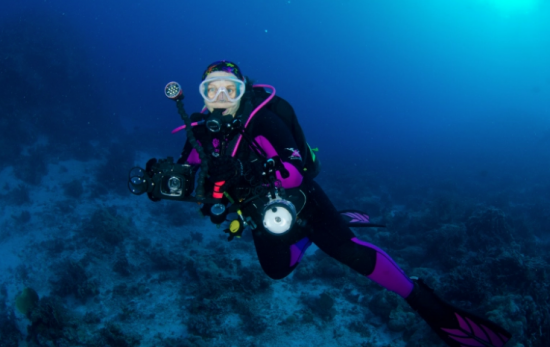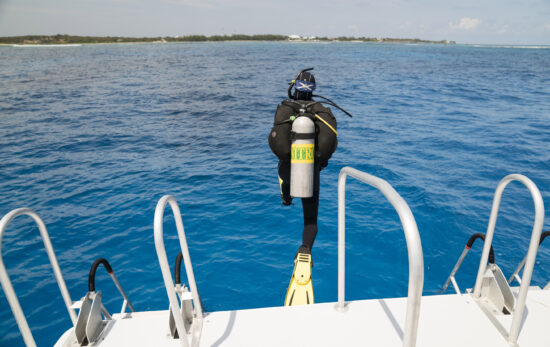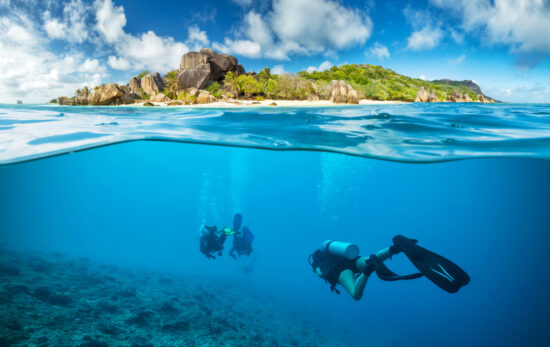From fulfilling a life’s purpose to building connections, scuba diving can make you feel great in many different ways. It’s also a pillar for physical and mental health, offering an underwater meditation experience that takes you, quite literally, away from the hustle and bustle of life above the waves and into a world of peace, bubbles, and tranquility.
How scuba diving meditation helps to bring inner peace:
- It takes you away from stresses on land, and re-focuses the mind on the ‘here and now’
- It encourages controlled breathing, which goes hand-in-hand with wider underwater meditation techniques
- The kaleidoscope of colors and soothing underwater sounds have a calming effect
- Learning skills, meeting new people, and visiting different places can be sources of happiness
- Getting outdoors and being nurtured by nature has been proven to increase wellbeing
There are many underwater meditation benefits, and scuba diving in particular helps to focus the mind and bring inner peace through controlled breathing, sensory consciousness, and an undivided point of attention.
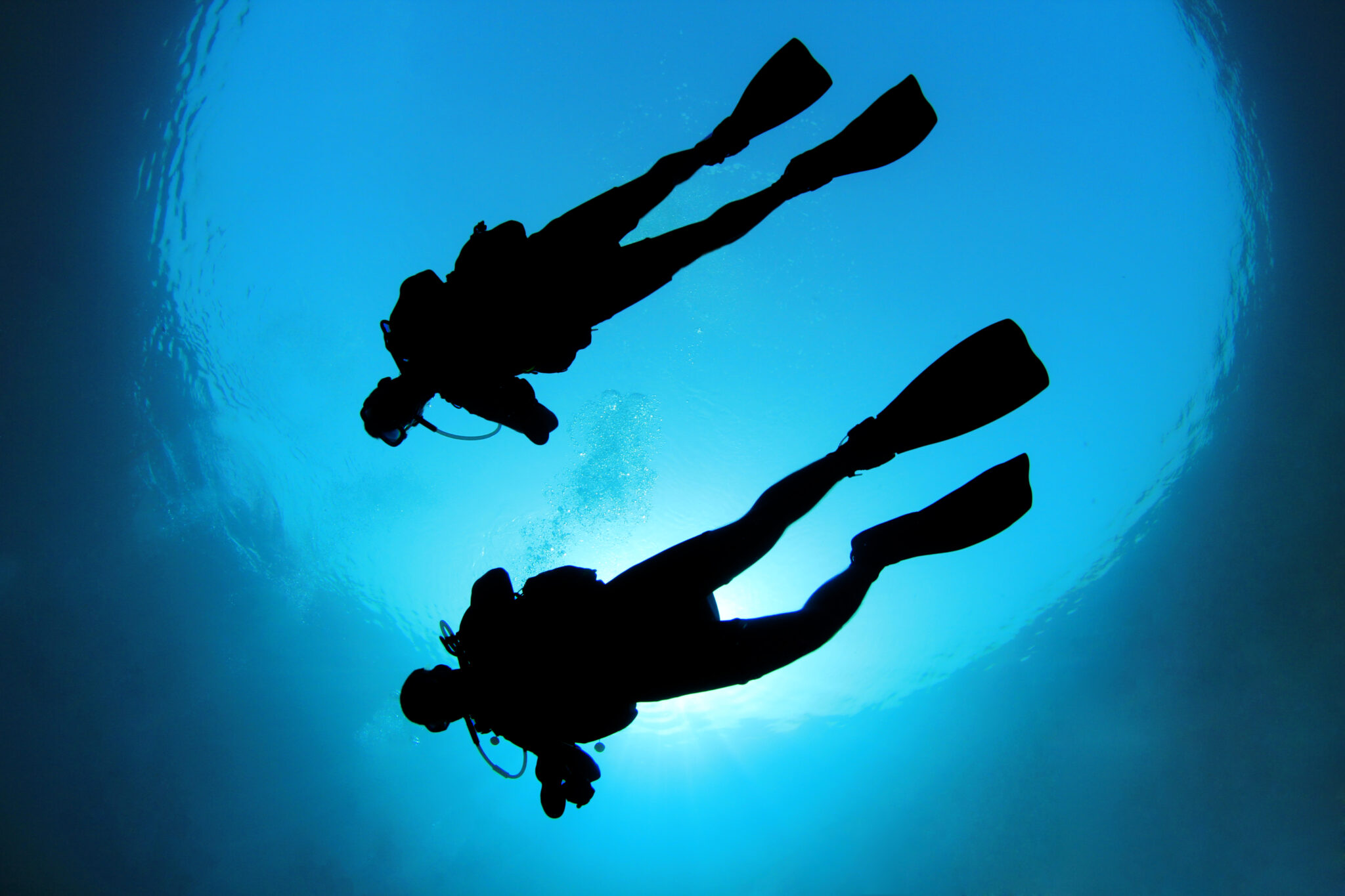
Underwater meditation clears the mind
There is a wealth of information out there about the negative effects of stress on the human body and the positive effects of taking time out to relax, meditate, and ‘just be’. It’s easier said than done, though. Due to our busy lives and sometimes hectic schedules, meditating is something of a luxury for many of us. It’s not always easy to find a quiet place where we won’t be interrupted.
Even when we do find the right environment and the time, it’s hard to clear our minds. It might be reeling from a day at work, thinking about family commitments, or worrying about how to squeeze in time with friends. This is why scuba diving gives you an advantage. You don’t need to imagine being in a ‘happy place’ if you are in one for real. Being underwater during meditation means the phone won’t ring, and you can’t check your emails. Plus, you don’t need to make a mental effort to get away from the real world – because you already have physically.

Breathe in, breathe out
There are numerous techniques for successful meditation, but they all center around one key factor – breathing. Controlled yet relaxed breathing. Focusing on breathing allows you to become more self-aware, more centrally focused, and more relaxed. On a good day it comes easily, but on stressful days it is hard to switch off and zone out. Often that’s because even though you are sitting in a quiet room and willing your mind to take you away, it’s just too busy.
Underwater meditation through scuba diving gives your brain tranquil alternatives to focus on, such as marine life, coral, and the underwater world. You’re also blissfully aware that you won’t and can’t be disrupted by a ringing phone or a pinging inbox.
Diving and the art of breathing
As divers, we understand the practice of breathing for diving – slowly and steadily. By employing this breathing pattern, we improve our buoyancy and our overall diving experience. We also create a more relaxed mind and body. Even the rhythmic sound of our bubbles as we breathe out contributes to a more relaxed state of mind. (If you want to become a master of underwater breathing techniques and buoyancy, ask your dive shop about the PADI Peak Performance Buoyancy Specialty course).
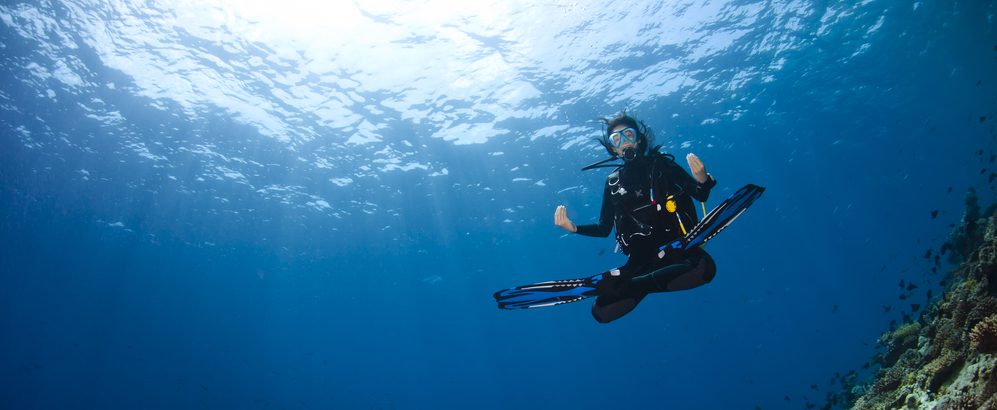
Most forms of meditation (of which there are many) begin with relaxing and slowing your breathing pattern, taking deep and controlled breaths in and out, and focusing your mind solely on your breathing. As divers, this comes naturally to us when we are underwater. Breathing in this way helps us to relax. It also means that in potentially stressful situations we are more likely to remain calm.
Achieving a single focus through breathing
Deep breathing increases oxygen levels, which benefits both the mind and the body. As we focus on our breathing, we enter a meditative state. Our minds are cleared of the many thoughts that we would otherwise be having on land. All that matters is our breathing and the underwater world around us. Achieving a singular focus is one of the main aims of meditation – one which many people can struggle with as their minds tend to wander and take them off course. For divers, we achieve a singular-focused state of mind almost every time we enter the water. We become one with the world around us, our breathing, and our body.
Scuba diving encourages a meditative state which increases consciousness and control of the body, allowing us to achieve inner peace through a single focus that clears our minds so they become free from our day-to-day stresses and worries.
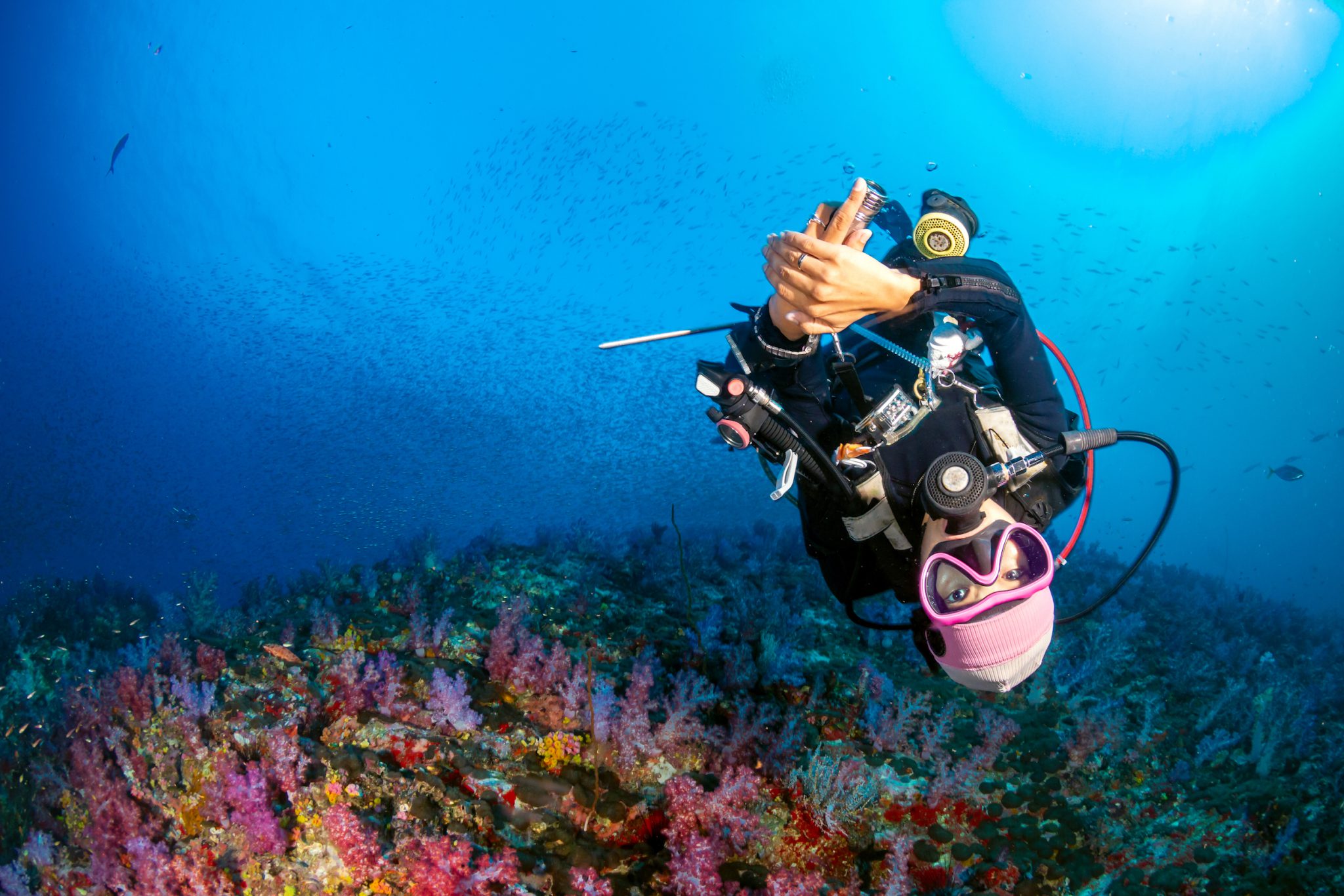
How to meditate underwater
Some people wonder, ‘is it possible to meditate underwater?’ — and the answer is yes! Often, water-based meditation involves bathtubs, swimming pools, and even sensory deprivation tanks, or listening to underwater meditation music and guided sessions. But, as scuba divers, we have everything we need all in one place: the ocean. It takes the lead when it comes to underwater meditation, with all-natural sounds and sights that literally wash over and relax the mind.
The best part is that you don’t have to learn any special techniques. Just immerse yourself in your next scuba diving experience, then let Mother Nature do the rest:
Underwater sounds for inner peace:
- The steady sound of your bubbles as you breathe in and out
- Gentle tapping, crackling, and popping noises, as reef inhabitants feed and move
- The gentle breaking of waves on the surface
- The mesmerizing melody of distant whale songs
Relaxing underwater sights:
- The colors, shimmers, and dances of tropical marine life
- Divers’ bubbles catching the sunlight as they float upwards
- The swaying of seaweed and fan corals in the current
- The slow, gliding motion of sharks or manta rays as they cruise past
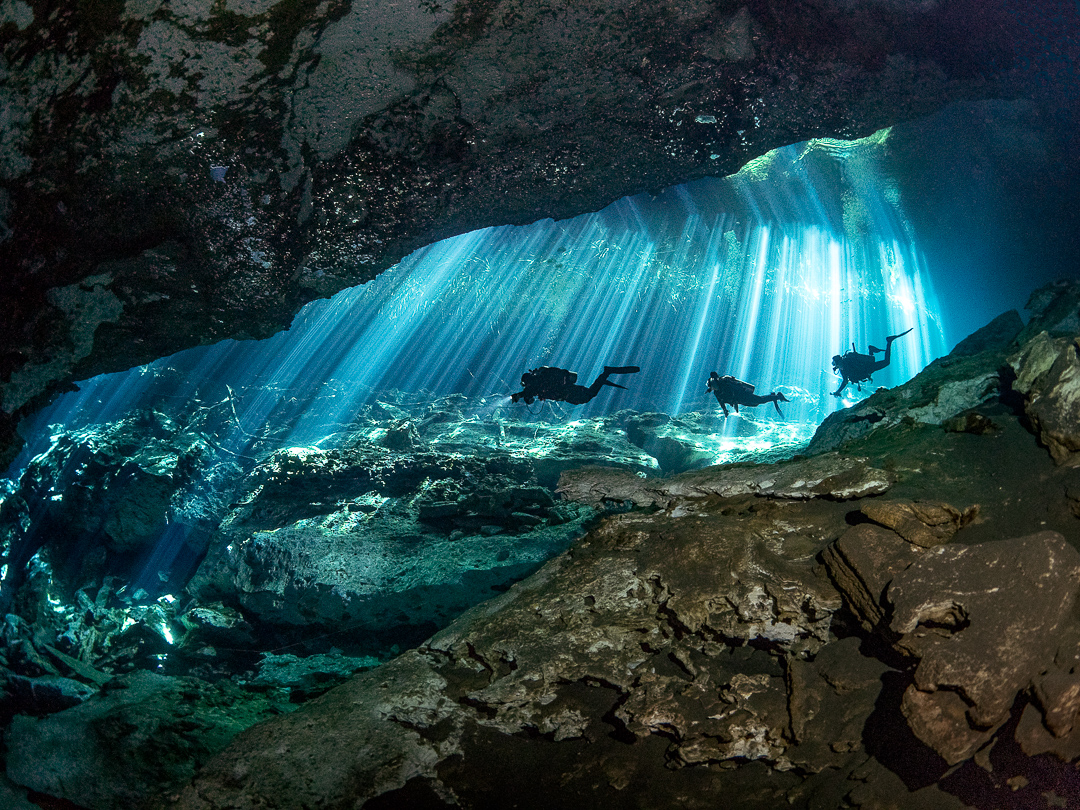
Scuba diving engages the senses
While meditation differs from mindfulness, it helps promote mindful living. It embraces slowing down, being ‘present’, and perceiving the five senses. The beauty of scuba diving is that it engages your senses for real — not just in your mind. Even before hitting the water, there’s nothing else like the taste and smell of the ocean air. During your dive, you can feel the water against your skin and the changes to your buoyancy as you breathe. There are differences in vision and color. Noises become muted, and you’ll tune into the rhythmic sounds of your bubbles.

Relaxing destinations for scuba diving meditation
Forget that underwater meditation video – instead, plan a scuba vacation for the utmost peace and tranquility. Indeed, here are five great destinations which promise happy, mindful moments:
- Egypt’s Red Sea: escape into some of the world’s most dazzling reefs and marine life
- Norway: seek serenity in crystal-clear waters, ice-capped vistas, and the elusive northern lights
- Mexico’s cenotes: witness the sun’s rays lighting up giant caverns for an ethereal experience
- Muck diving in Indonesia: slow down and focus on the little moments that matter
- California: find your Zen in the hypnotism of kelp forests and playfulness of sea lions
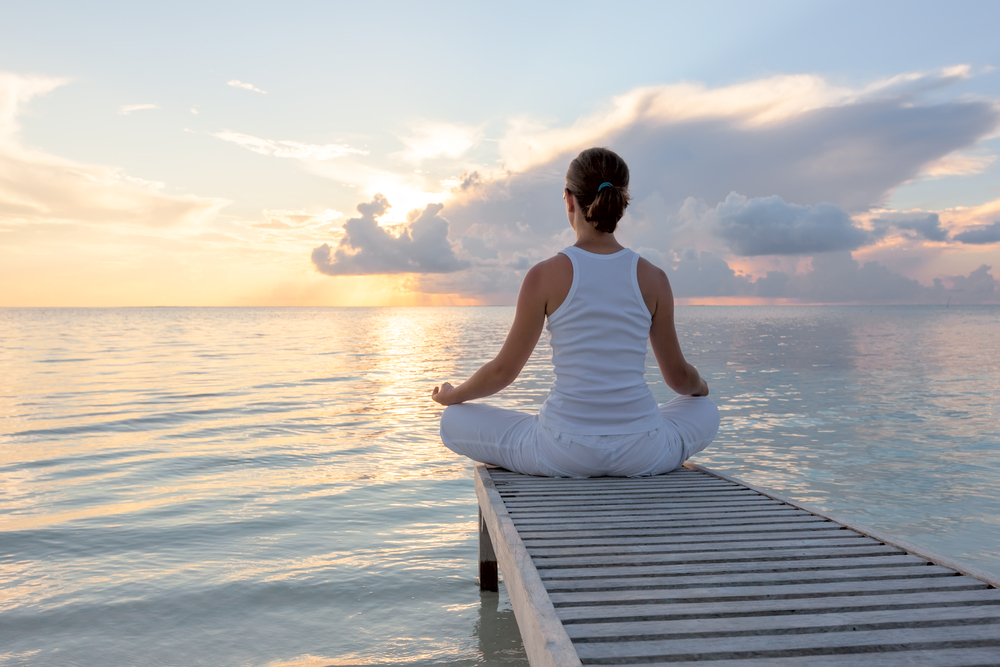
Enriching your underwater meditation
Scuba diving already offers unrivaled underwater meditation, but there are a few things you can do to enhance your experience:
- Start in a positive frame of mind. Make sure you’re confident and prepared for the dive ahead, and stay calm with yoga or wellness apps.
- Slow down and focus. It’s easy to rush around looking for big encounters, but try to slow down and observe the smaller details in front of your eyes, like the textures of coral or the tiniest crustaceans.
- Make diving second nature. By perfecting skills like buoyancy and drift diving, you will be primed and ready for distraction-free relaxation.
- Keep practicing. Even at home, you can rekindle a peaceful state of mind through practice. Close your eyes and visualize a favorite dive, or try a virtual diving adventure.
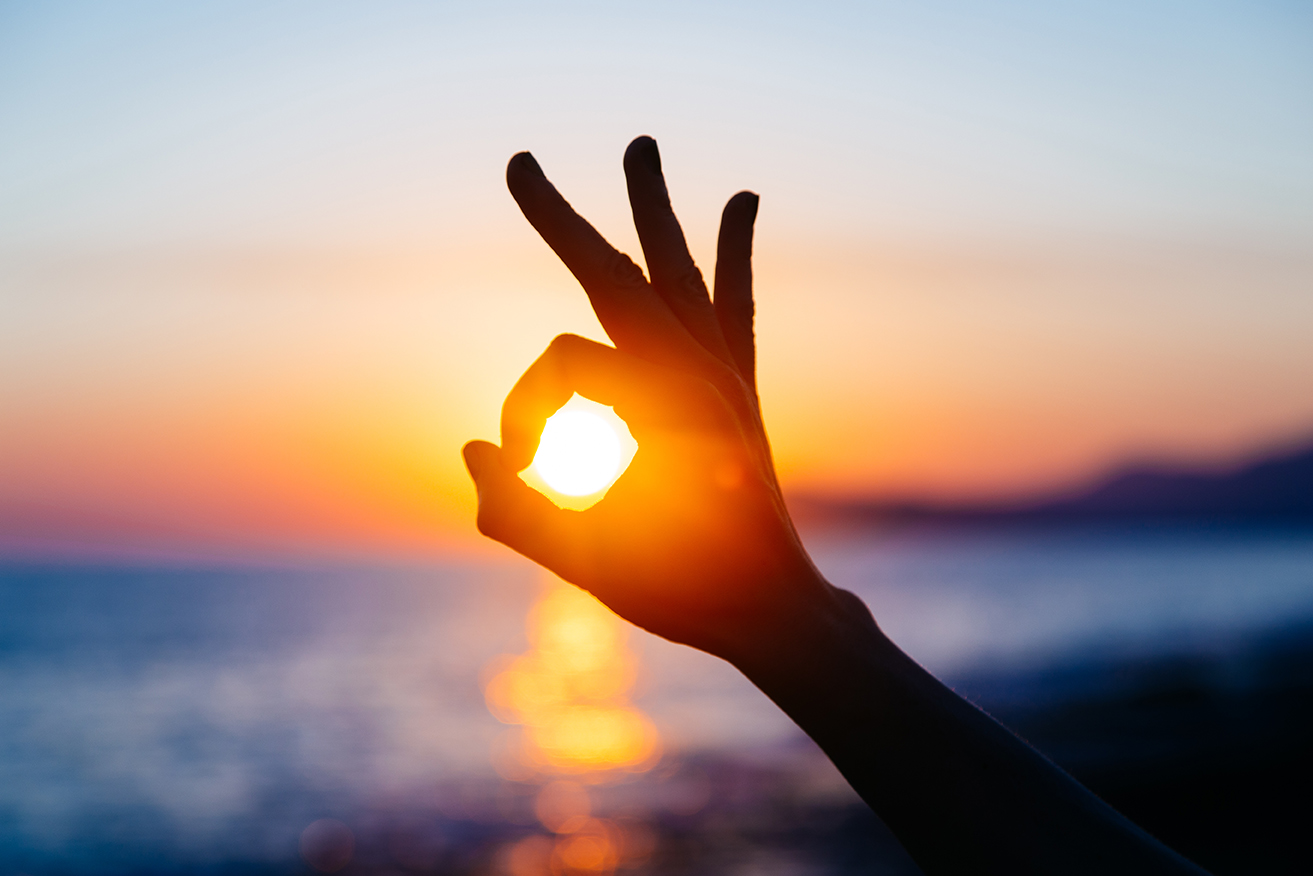
What is the benefit of underwater meditation?
Scuba diving meditation benefits mental wellbeing, quality of life, and our health. One crucial benefit of meditation is that it reduces blood pressure, which therefore reduces the risk of heart attack or stroke. With regular meditation, stress and anxiety levels are reduced, and our ability to cope with problems and difficult situations improves. Medical studies have shown that by reducing our stress levels, we also improve our relationships, concentration, sleep patterns, general wellbeing, positivity, and happiness.
If that doesn’t have you reaching for your wetsuit, then other benefits of meditation include:
- Strengthening your immune system
- Slowing ageing
- Longer life expectancy
- Less risk of depression
- Helping to fight substance addiction (such as nicotine, alcohol, and recreational drugs)
- Reduced risk of panic attacks and hypertension
How can meditation have such wide-reaching benefits? The biggest benefit, and the one that really affects us, is that meditation leads to an all-round more balanced and calmer life.
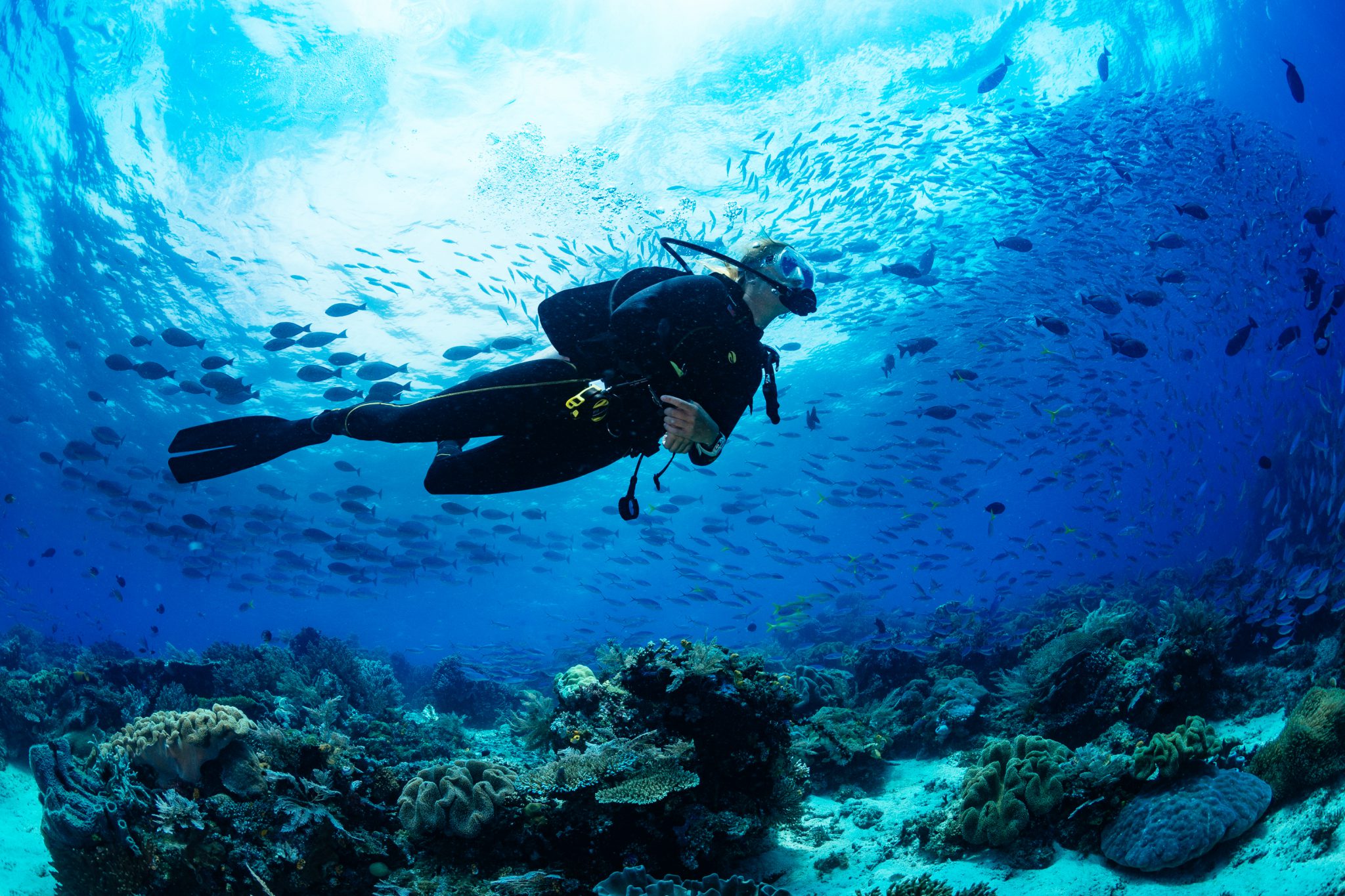
Discover the joy of underwater meditation
Whether your happy place is filled with sandy beaches or ice-capped mountains as a certified scuba diver, visit PADI Travel for inspiration on the most relaxing scuba diving destinations. And, if you are ready for your next dive (or should we say underwater meditation session), check out what is on offer at your local PADI Dive Shop.
Alternatively, if you aren’t yet a certified diver, it’s time to take the PADI Open Water Diver course to experience Wellness Unfiltered. Start your scuba diving journey today and learn to #LiveUnfiltered.

